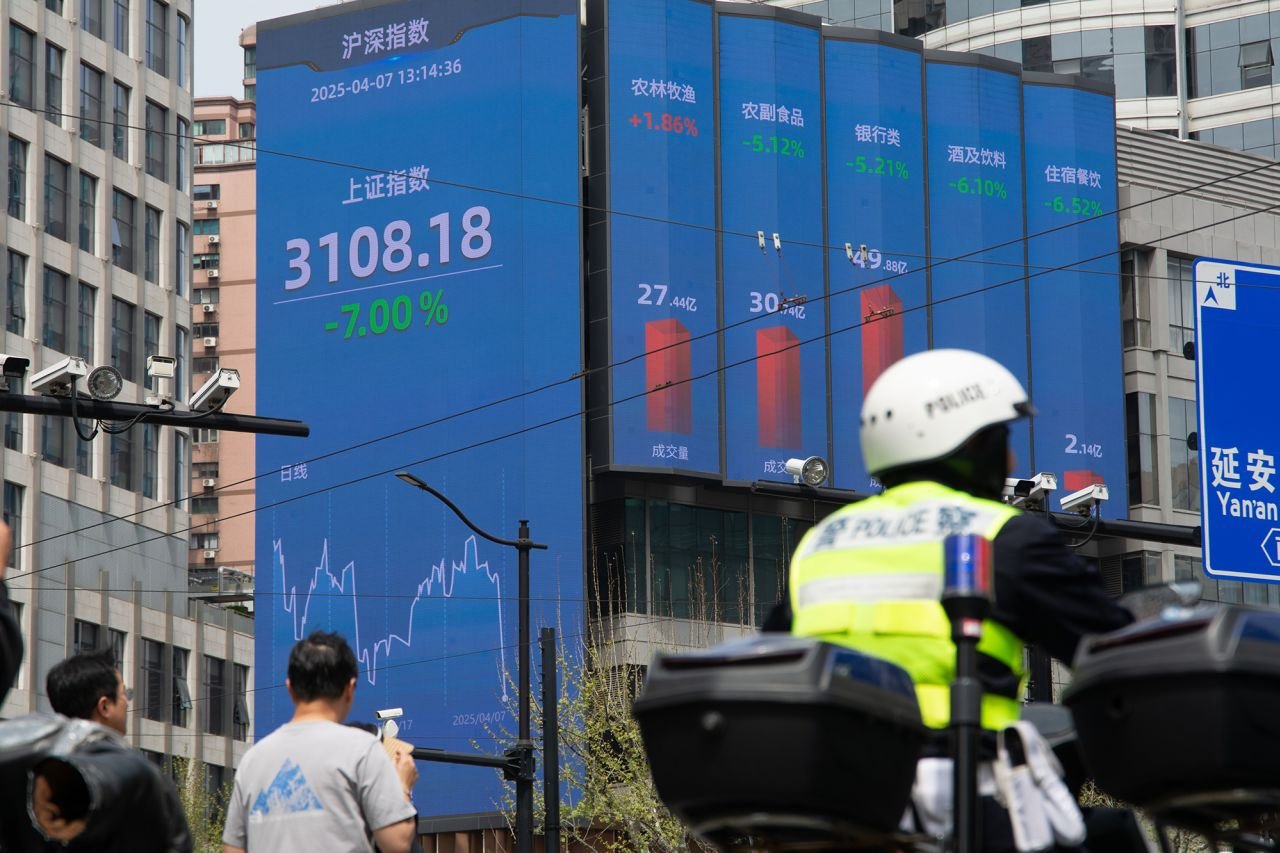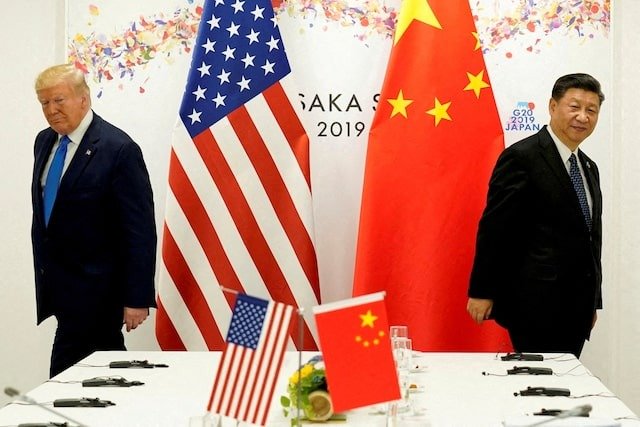It’s Monday morning, and the global financial markets are in turmoil. The recent imposition of tariffs by US President Donald Trump has sparked a widespread market rout, with significant declines in Asia and Europe. The US markets are also bracing for a further slump as they prepare to open. Last week, President Trump announced a 10% tariff on all US imports and reciprocal levies on nearly 90 countries. This move has sent shockwaves through the global economy, wiping trillions of dollars off investor wealth.
Asian markets have been hit particularly hard. Hong Kong’s Hang Seng index closed down 13.2%, its worst day since 1997. Japan’s Nikkei 225 index also suffered a significant drop, falling nearly 8%. The markets in Taiwan, Hong Kong, and Mainland China were closed on Friday for a public holiday, so today’s declines reflect a catch-up from the previous week’s turmoil. The severity of the drops underscores the deep uncertainty and fear among investors about the future of global trade and economic stability.
European markets have also taken a significant hit. Germany’s DAX fell 9%, while London’s FTSE 100 was down around 5%. European Union trade ministers are currently meeting in Brussels to discuss a coordinated response to Trump’s tariffs. The widespread declines highlight the interconnected nature of global markets and the potential for trade policy to have far-reaching economic consequences.
As the US markets prepare to open, the outlook is grim. US stock futures are signaling further weakness, with the Dow Jones Industrial Average futures down 1,242 points, Nasdaq futures off 685.25 points, and S&P 500 futures down 181.25 points. If the US stock market closes in bear territory—a drop of 20% from a recent peak—it would be the earliest in a new administration that a bull market has turned into a bear market in the history of the S&P 500. The uncertainty surrounding trade policy is causing significant anxiety among investors.
Prominent business leaders are voicing their concerns about the potential economic fallout from Trump’s tariffs. JPMorgan Chase chief Jamie Dimon has warned that the tariffs could raise prices, tip the global economy into recession, and weaken America’s standing in the world by tearing up its alliances. Elon Musk, who helped elect President Trump, has also expressed his preference for a “zero-tariff situation” between the US and EU. These warnings highlight the growing unease among corporate leaders about the potential negative impacts of the current trade policies.
Top Trump administration officials have offered mixed messages over whether countries can negotiate their way out of tariffs or if the levies are here to stay. Larry Summers, former Treasury Secretary under Barack Obama, criticized the administration for lacking a coherent message on why it’s implementing the largest tax increase seen in the US in 50 years. This lack of clarity is adding to the overall uncertainty and contributing to the market volatility.
The global market rout sparked by President Trump’s tariffs is causing significant concern among investors and business leaders. The dramatic declines in Asia and Europe, along with the looming threat of further drops in the US, highlight the deep uncertainty surrounding trade policy. As the world’s largest economies grapple with the potential for a trade war, the need for clear and coherent messaging from policymakers is more important than ever.
The situation remains fluid, and investors are closely watching for any signs of a resolution or further escalation in the trade tensions. The coming days will be crucial in determining the direction of the global economy.




